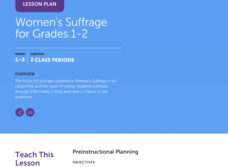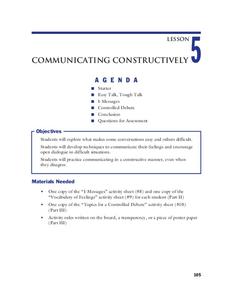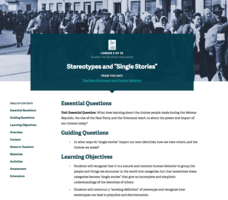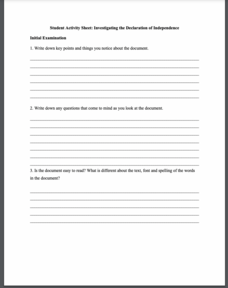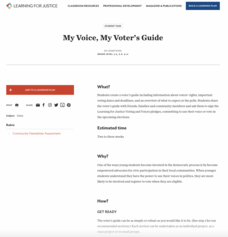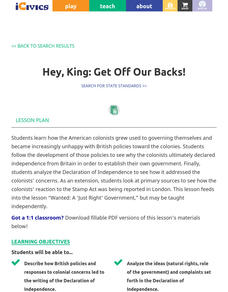Scholastic
Women's Suffrage for Grades 1–2
Scholars take part in a grand conversation after they examine facts and stories about the Women's Suffrage Movement. Eight discussion questions bring light to influential women, the importance of voting, citizenship, and voting rights.
Bully Free Systems
Bully Free Lesson Plans—Seventh Grade
Having a hard time defining bullying with your seventh graders? Discuss the different types of behavior one would see in a bullying situation with a series of lessons, worksheets, and group activities.
Overcoming Obstacles
Communicating Constructively
Some types of verbal communication are just more difficult that others. High schoolers engage in a series of activities that are designed to help teens make difficult conversations easier and more effective.
Global Oneness Project
Reclaiming Rivers
Robert Hass's article "Rivers and Stories" underscores the importance of rivers in the development of civilization and the importance of reclaiming supposedly dead rivers and implementing policies that protect river health. Groups...
Carolina K-12
Making First Vote Your Vote: Designing a Schoolwide Election
Encourage pupils to design an election plan for the entire school. They participate in a Board of Elections, create polling rules, discuss election controversies, write questions about the issues, run the election through an online...
Facing History and Ourselves
Stereotypes and “Single Stories”
Help bring subconscious stereotypes to the surface to stop it in its tracks. Pupils first read an excerpt describing the experience of prejudice and analyze how this process connects to World War II. Then, they write a creative story...
Montana State University
Everest Extremes: Biodiversity
How many animals can live in a climate as cold as Mount Everest's? Find out with a science lesson all about biodiversity. Activities include research, presentations, group work, coloring maps, and a simulation of a food web.
Roy Rosenzweig Center for History and New Media
Investigating the Declaration of Independence
Teach your class about the Declaration of Independence while giving them practice working as a team. The resource breaks participants into groups and has them answer questions about specific grievances from the Declaration of...
State of Victoria Department of Education and Early Childhood Development
The Long Wall of China
While some aspects of the Great Wall of China are known, other parts of its story are obscured by time. A research lesson asks scholars to consider what we know and don't understand about this wonder of the world. The class then compiles...
Roy Rosenzweig Center for History and New Media
Founding Documents
Teach the class about the predecessor to Declaration of Independence—the Virginia Declaration of Rights. Using the foundational documents, scholars examine the two writings to consider how they are similar and how they are different. A...
Teaching Tolerance
My Voice, My Voter's Guide
Class members may be too young to vote, but that doesn't mean their voices are silent! After researching key information, such as policies for registering to what to expect at the polls, young scholars create and present election guides...
Scholastic
Voyage on the Mayflower for Grades 6–8
Imagine living in the hold of a sailing ship for 63 days, enduring rough seas and autumn storms. As part of a study of the voyage of the Mayflower, class members examine an online resource that details life about the ship, watch a slide...
Curated OER
Rise and Fall of the Roman Empire
Your class can follow along with this PowerPoint to learn about all the triumphs and defeats that led to the rise and fall of the Roman Empire. Each slide contains key information related to Roman rule, law, religion, philosophy,...
US National Archives
WWII: The Pacific 1939-45 – Japan and the Atom Bomb
Though the scientists who developed the atom bomb did not believe it should be used to end World War II, American President Harry S. Truman and British Prime Minister Winston Churchill were of like mind in their decision to drop the bomb...
iCivics
Hey, King: Get Off Our Backs!
Young historians explore the reason American colonists were unhappy under British rule. Class members complete hands-on activities and participate in a group discussions to understand why colonists drafted the Declaration of Independence.
National Park Service
Pulley Systems Used at Fort McHenry
What a great opportunity to integrate science into your lesson on the War of 1812! Discover how pulley systems were used to move 1,000 lb. cannons at the Battle of Fort McHenry, and to raise the flag that would inspire Francis Scott Key...


